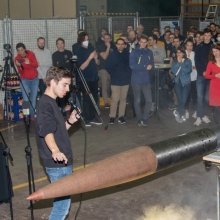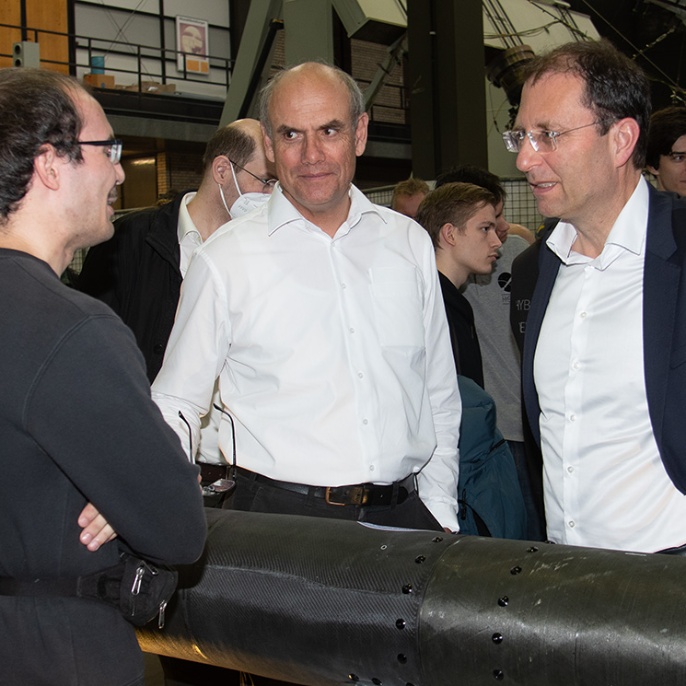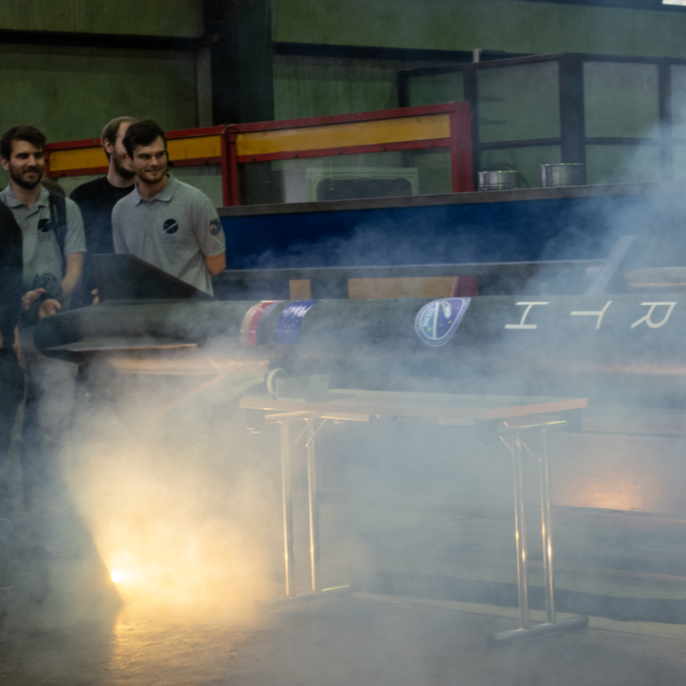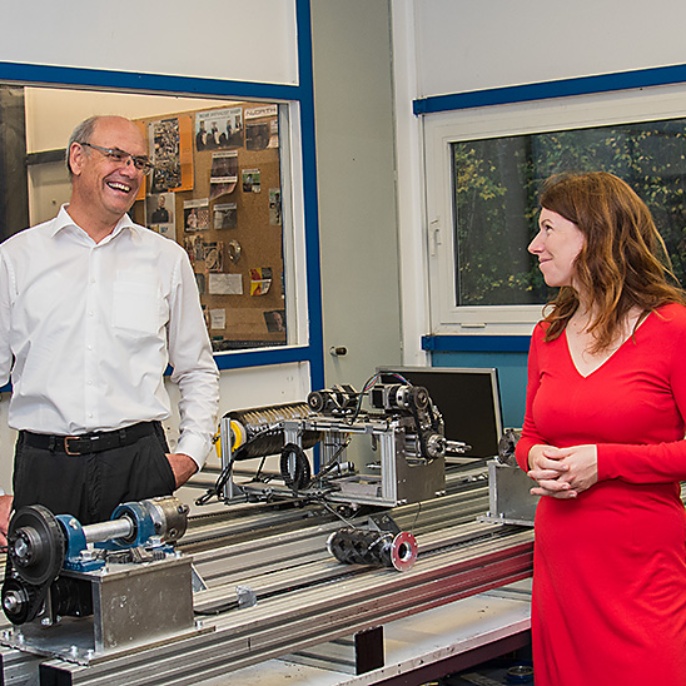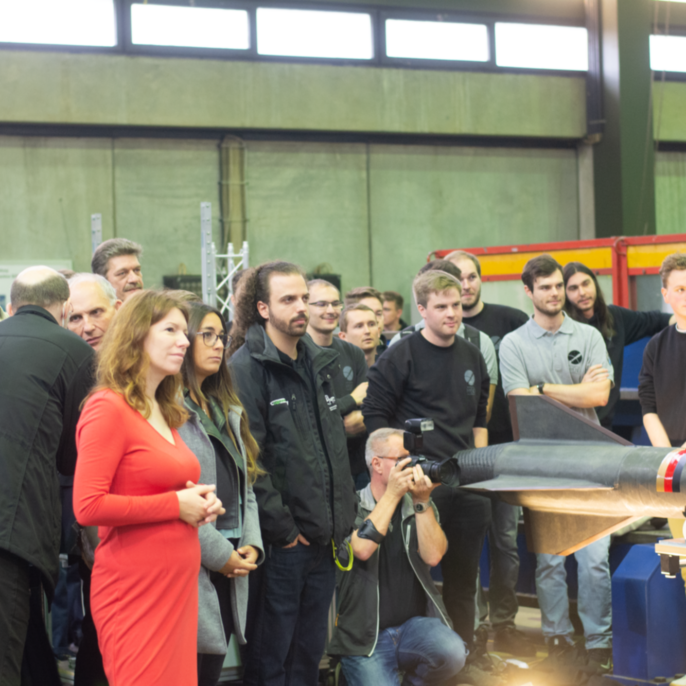All eyes are locked on a black cloth shrouded in clouds of smoke. A seven-meter-long rocket is concealed beneath. It was built by the students, who are now busy pulling away the cloth to present their experimental rocket to the audience in the Materials Testing Institute (MPA) at the University of Stuttgart, accompanied by loud applause. "It's not ready to fly yet," Julian Dobusch, head of propulsion development, reassures those present. But that is set to change soon. The N2ORTH rocket is scheduled to launch in the spring of 2023 at the Swedish Space Corporation’s (SSC) Kiruna site.
For the flight, the more than 60 students that make up the Hybrid Engine Development (HyEnD) group at the University of Stuttgart have a clear goal in mind: They want to beat their own altitude record for student hybrid rockets, which they set in 2016. The N2ORTH rocket has a hybrid engine that uses solid fuel and liquid nitrous oxide. To set a new record, the rocket must be as light as possible. For example, the 160-liter oxidizer tank is made exclusively of carbon fiber-reinforced plastic. The empty weight of the entire rocket is less than 70 kilograms, and it is designed to reach a flight altitude of more than 100 kilometers.
Development and construction of the rocket took three years
"We take part in HyEnD because it gives us the chance to apply the theory we learned in our studies in practice. That's more exciting than just doing calculations," says Dobusch. The students spent a total of three years developing and constructing the experimental rocket on their own, alongside their studies. "At times, we worked 30 or 40 hours a week on the rocket. Some of us were even busy for around 60 hours," says process engineering student Amelie Katzke. "The official presentation of the rocket today, marks a milestone. We are relieved and looking forward to the upcoming launch in Sweden." The presentation of the rocket was also attended by the Federal Government Coordinator of German Aerospace Policy Dr. Anna Christmann. She congratulated the students on their successful rollout and was impressed by their dedication.
The project N2ORTH rocket project is based at the Institute of Space Systems (IRS) at the University of Stuttgart, and MPA provides the students with workshops and laboratories. The project is funded by the students' participation in the STERN program of the German Aerospace Center (DLR), which enables students from German universities to build and launch a rocket.


